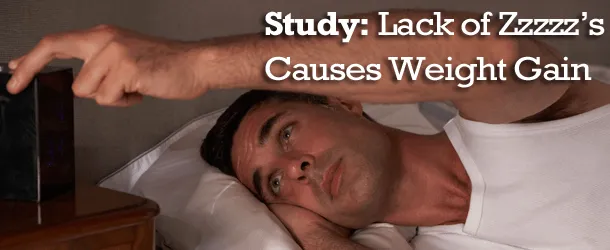While those unwanted pounds aren’t likely to effortlessly melt away, catching a few extra Zs may be an effective strategy toward maintaining a healthy weight. Paradoxical as it seems, studies are showing that more sleep is a dieter’s ally, while burning the midnight oil may sabotage weight loss goals.

Sleep signals hormones
It’s really not as implausible as it seems when you consider the many benefits of sleep on the mind and body. Scientists have long known that when we don’t get enough sleep, certain body hormones are thrown off balance, such as ghrelin and leptin, which influence appetite. Ghrelin, known as the hunger hormone, stimulates appetite; the higher the level, the hungrier you feel. Leptin, on the other hand, lets the brain know when the body is full.
When levels are normal, leptin counter-regulates ghrelin, keeping hunger in check. Sleep deprivation causes a rise in ghrelin levels, signaling hunger, and lowers leptin levels, which dulls the signal of satiety.
The science on sleep and weight
Many studies, including the large scale Nurses’ Health Study, which followed 60,000 women for 16 years, have reported an association between short sleep duration and increased weight and risk for weight gain, and obesity.
A study published in 2010 in the Annals of Internal Medicine divided 12 healthy dieters into two groups for two weeks. One group had 5.5 hours of sleep, while the other had 8.5 hours. The sleep-deprived group had decreased leptin and increased ghrelin levels, and a 45 percent increase in hunger and cravings for high-carbohydrate, calorie-rich foods compared with the adequate-sleep group. While both groups lost weight, more than half of the weight lost in the adequate sleep group was from fat, compared to only one-fourth from fat in the sleep-deprived group.
The 2004 study of the Wisconsin Sleep Cohort also found that among 1,000 volunteers, those who slept the fewest hours had the highest levels of body fat.
Some research indicates that weight gain may be simply the result of spending more hours awake with more time to eat and fewer calories burned due to a general lack of energy. However, sleep quality turns out to be an important factor in the sleep-weight equation, too.
Because most calories burned during sleep take place in the REM state (rapid eye movement, when the brain is most active), those who have interrupted sleep or a sleep disorder such as sleep apnea don’t spend enough time in that phase. In fact, sleep apnea patients are more likely to be obese, despite normal leptin levels, which indicates that people may respond differently to leptin and that other individual factors may be at play, such as stress levels, exercise, diet, and genetics.
As research continues to emerge, it makes sense to make time for the recommended 7-9 hours sleep each night. It feels good, boosts energy for the day ahead, and if it helps stave off extra pounds, it’s time well spent.
– Environmental Nutrition
Reprinted with permission from Environmental Nutrition, a monthly publication of Belvoir Media Group, LLC. 800-829-5384. www.EnvironmentalNutrition.com. (c) 2012 BELVOIR MEDIA GROUP DISTRIBUTED BY TRIBUNE MEDIA SERVICES, INC.
